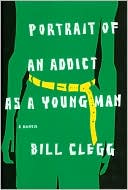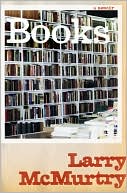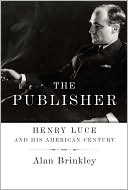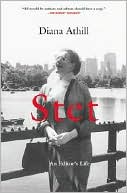In the Sanctuary of Outcasts
Daddy is going to camp. That's what I told my children. But it wasn't camp. . . .\ \ Neil White wanted only the best for those he loved and was willing to go to any lengths to provide it—which is how he ended up in a federal prison in rural Louisiana, serving eighteen months for bank fraud. But it was no ordinary prison. The beautiful, isolated colony in Carville, Louisiana, was also home to the last people in the continental United States disfigured by leprosy—a small circle of outcasts who...
Search in google:
Neil White, a journalist and magazine publisher, wanted the best for those he loved nice cars, beautiful homes, luxurious clothes. He loaned money to family and friends, gave generously to his church, and invested in his community but his bank account couldn't keep up. Soon White began moving money from one account to another to avoid bouncing checks. His world fell apart when the FBI discovered his scheme and a judge sentenced him to serve eighteen months in a federal prison. But it was no ordinary prison. The beautiful, isolated colony in Carville, Louisiana, was also home to the last people in the continental United States disfigured by leprosy. Hidden away for decades, this small circle of outcasts had forged a tenacious, clandestine community, a fortress to repel the cruelty of the outside world. It is here, in a place rich with history, where the Mississippi River briefly runs north, amid an unlikely mix of leprosy patients, nuns, and criminals, that White's strange and compelling journey begins. He finds a new best friend in Ella Bounds, an eighty-year-old African American double amputee who had contracted leprosy as a child. She and the other secret people, along with a wacky troop of inmates, help White rediscover the value of simplicity, friendship, and gratitude. Funny and poignant, In the Sanctuary of Outcasts is an uplifting memoir that reminds us all what matters most. The Washington Post - Juliet Wittman …this book offers an important glimpse into a dark and receding corner of our medical and penal history, as well as a fascinating personal story.
In the Sanctuary of Outcasts\ A Memoir\ Chapter One\ Daddy is going to camp. That's what I told my children. A child psychologist suggested it. "Words like prison and jail conjure up dangerous images for children," she explained.\ But it wasn't camp. It was prison.\ "I'm Neil White," I said, introducing myself to the man in the guardhouse. I smiled. "Here to self-surrender."\ The guard looked at his clipboard, then at my leather bag, then at his watch. "You're forty-five minutes early."\ "Yes, sir," I said, standing tall, certain my punctuality would demonstrate that I was not your typical prisoner. The guard pointed to a concrete bench next to the guardhouse and told me to wait.\ The grounds were orderly and beautiful. Ancient live oaks, their gnarled arms twisting without direction, lined the grove between the prison and the river levee. The compound...called "Carville" by the U.S. marshal who had assigned me to this prison...was a series of classic revival-style two-story buildings. The walls were thick concrete painted off-white, and each building was connected by a two-story enclosed walkway. Large arched windows covered by thick screens lined the walls. There were no bars on the windows. Nothing but screen between prison and freedom.\ Through the windows I saw a man limping in the hallway. He stopped at the last arched window, the one closest to the guardhouse, and looked out. He was a small black man wearing a gentleman's hat. Through the screen his face looked almost flat. He stood at the window and nodded as if he had been expecting me, so I waved. He waved back, but something was wrong with his hand. He had nofingers.\ I stood and stepped over to the guardhouse. "Is that an inmate?" I asked the guard with the clipboard, motioning toward the man behind the screen.\ "Patient," the guard said.\ "A sick inmate?"\ "You'll find out," he said, and went back to his clipboard.\ I looked back for the man with no fingers, but he was no longer at the window. I wondered if he had lost his fingers making license plates or in some kind of prison-industry accident. Or God forbid, in a knife fight. I returned to my bench wondering why he was roaming about instead of locked in a cell.\ The prison sat at the end of a narrow peninsula formed by a bend in the Mississippi River, twenty miles south of Baton Rouge. The strip of land was isolated, surrounded by water on three sides. My wife, Linda, and I had driven ninety quiet, tense minutes north from New Orleans. We left the radio off, but neither of us knew what to say. As we passed through the tiny town of Carville, Louisiana, a road sign warned: PAVEMENT ENDS TWO MILES. Just outside the prison gate, I'd stood at the passenger window. Linda looked straight ahead gripping the steering wheel with both hands. I'd leaned in through the window to kiss her good-bye. A cold, short kiss. Then I watched her drive away down River Road until she disappeared around the bend.\ As I sat on the bench, waiting for the guard, I resolved again to keep the promises I made to Linda and our children...that I would emerge the same husband, the same father; that I would turn this year into something positive; that I would come out with my talents intact; that I would have a plan for our future.\ A guard in a gray uniform drove toward me in a golf cart. He stopped in front of the bench and stepped out of the cart. A tall, muscular black man, he must have stood six feet, four inches. A long silver key chain rattled when he walked.\ "I'm Kahn," he said.\ I introduced myself and held out my hand. He looked at it and said, "I know who you are."\ I put my hand back by my side.\ He picked up my British Khaki bag. It was a gift from Linda and a reminder of better times. I had packed shorts and T-shirts, tennis shoes, socks, an alarm clock, five books, a racquetball racket, and assorted toiletries, as if I were actually going to camp. Kahn tossed the bag in the cart and told me to get in.\ We drove down a long concrete road that ran along the right side of the prison adjacent to a small golf course, and I wondered if inmates were allowed to play. We passed at least ten identical buildings that looked like dormitories. The two-story enclosed hallways that connected each building formed a wall surrounding the prison. The place was enormous. Enough room for thousands, I guessed.\ I had done my research on prisons. Not as an adult, but in high school. I had been captain of my debate team. I understood the pros and cons of capital punishment, mandatory minimum sentencing, drug decriminalization, bail reform, and community-service sentences. I won the state debate championship advocating drug trials on convicts. I argued with great passion that testing new medications on federal prisoners would expedite the FDA's seven-year process to prove drug safety and efficacy, that the financial drain on taxpayers would be greatly reduced, and that these tests would give inmates an opportunity to earn money, pay restitution, and seek redemption, while thousands of innocent lives would be saved. When I was debating the merits of drug testing on prisoners, I never dreamed that I might someday be one.\ Kahn stopped the golf cart at the last of the white buildings. He grabbed my bag as if it were his own now, and we entered through a metal door. The walls were newly painted, and the floor was well polished and shone like Kahn's shaved head. I walked behind him down a narrow hallway, and he pulled the chain from his pocket. He unlocked a door marked R & D. My heart skipped, and I felt panic coming on as we stepped inside.\ In the Sanctuary of Outcasts\ A Memoir. Copyright © by Neil White. Reprinted by permission of HarperCollins Publishers, Inc. All rights reserved. Available now wherever books are sold.
\ Booklist"[Neil White] offers a memoir of personal transformation and a thoroughly engaging look at the social, economic, racial, and other barriers that separate individuals that harden, dissolve, and reconfigure themselves when people are involuntarily thrust together over long periods."\ \ \ \ \ John Grisham"A remarkable story of a young man’s loss of everything he deemed important, his imprisonment in a place that would terrify anyone, and his ultimate discovery that redemption can be taught by society’s most dreaded outcasts."\ \ \ John Berendt"A wonderfully bizarre and entertaining memoir of jailhouse redemption—by turns hilarious, astonishing, and, when all is said and done, deeply moving."\ \ \ \ \ Darcey Steinke author of Easter Everywhere and Milk“Neil White in his luminous memoir IN THE SANCTUARY OF OUTCASTS explicates his own path to redemption. White brings to life a wacky bunch of characters who help him remember what is best about himself. His story is unique and deeply felt: I enjoyed this book immensely!”\ \ \ \ \ Lee Gutkind"Leprosy and white collar crime in one dynamic book? Neil White, a writer with a multiple mission, knits two fascinating and unfortunate stories into one powerful narrative that is informative, heart-breaking and highly compelling. White writes with clarity, sensitivity and unforgettable passion."\ \ \ \ \ Robert HicksIN THE SANCTUARY OF OUTCASTS was a rare treat for me as I not only learned about this extraordinary place, only whispered about when I was a child, but, even better, was reminded again of what really matters in this life."\ \ \ \ \ Pulitzer Prize–winner Robert Olen Butler“At once surreal and grittily naturalistic, funny and poignant, White’s tale is fascinating and full of universal resonance. And, not incidentally, White is a splendid writer, adept at both creating a scene and illuminating the human heart. This is a book that will endure.”\ \ \ \ \ Tom Franklin"Narrated in an engaging, affable voice with self-deprecating humor, IN THE SANCTUARY OF OUTCASTS is a great American story of personal transformation that leaves White — and ourselves — forever changed."\ \ \ \ \ Steve Yarbrough"White wastes no time getting to the hurt, and once he takes you there, you’ll be riveted. A searing tale of trouble, it’s also about finding a time and a place in which to lay the groundwork for a new life. A fine memoir and one I highly recommend."\ \ \ \ \ Author of Easter Everywhere and Milk"Neil White in his luminous memoir IN THE SANCTUARY OF OUTCASTS explicates his own path to redemption. White brings to life a wacky bunch of characters who help him remember what is best about himself. His story is unique and deeply felt: I enjoyed this book immensely!"\ \ \ \ \ Pulitzer Prize-winner"At once surreal and grittily naturalistic, funny and poignant, White’s tale is fascinating and full of universal resonance. And, not incidentally, White is a splendid writer, adept at both creating a scene and illuminating the human heart. This is a book that will endure."\ \ \ \ \ Dallas Morning News"A moving story of growth and transformation. Among the lost, [White] found humility, beauty, courage—and himself. "\ \ \ \ \ Richmond Times-Dispatch"This memoir represents an atonement persuasively made in an unlikely setting by an accomplished and engaging writer. "\ \ \ \ \ USA Today"A surprisingly gentle, sometimes hilarious memoir."\ \ \ \ \ Memphis Flyer"IN THE SANCTUARY OF OUTCASTS is more than a memoir. It’s most importantly a testament to the patients at Carville and the life lessons they gave and White took."\ \ \ \ \ Booklist (starred review)“[Neil White] offers a memoir of personal transformation and a thoroughly engaging look at the social, economic, racial, and other barriers that separate individuals that harden, dissolve, and reconfigure themselves when people are involuntarily thrust together over long periods.”\ \ \ \ \ Harper's Magazine"Vibrant and readable."\ \ \ \ \ Memphis Commercial Appeal"An impressively detailed and unsentimental memoir...funny and straightforward."\ \ \ \ \ The Mississippi Episcopalian"A meaningful look at the trajectory of one man’s life and his chance to change its direction. Worth reading and discussing...a particularly intriguing choice for reading groups."\ \ \ \ \ Publishers WeeklyFollowing conviction for bank fraud, White spent a year in a minimum-security prison in Carville, La., housed in the last leper colony in mainland America. His fascinating memoir reflects on the sizable group of lepers living alongside the prisoners, social outcasts among the motley inmate crew of drug dealers, mob types and killers. Narrating in colorful, entertaining snapshots, White introduces the reader to an excellent supporting cast in his imprisonment: Father Reynolds, the peerless spiritual monk; Mr. Flowers, the no-nonsense case manager; Anne, the sorrowful mother with leprosy whose baby was taken from her arms; and Ella the Earth Mother, with wisdom to spare. Brisk, ironic and perceptive, White's introspective memoir puts a magnifying glass to a flawed life, revealing that all of life is to be savored and respected. (June)\ Copyright © Reed Business Information, a division of Reed Elsevier Inc. All rights reserved.\ \ \ \ \ Kirkus ReviewsAn ex-con gains wisdom after doing time at a prison doubling as the last leper colony in America. White's trouble began when he started kiting checks for his newspaper business, the Oxford Times. Investor confidence misled him into proliferating more illicit activities. After surviving a bankruptcy, he began to assemble a "media dynasty" when an audit by the FDIC resulted in a conviction of bank fraud in 1992. Sentenced to Louisiana's Carville minimum-security prison, he left behind wife Linda and two young children in Mississippi. While at Carville, White became educated on the damaging stigma of leprosy-now more commonly referred to as Hansen's disease-since the prison also houses a leper colony. With felons integrated alongside the sick, the author admits to being initially repulsed ("I didn't want to breathe the air") but soon discovered how the afflicted live out their lives not only with misshapen or missing limbs that seemingly "disappear" from their bodies, but "plagued by lore, innuendo, and rumor" by the outside world. Dismissing rules against fraternization, White befriended Ella, a spunky African-American woman, wheelchair-bound with nearly 70 years spent at Carville. Initial visits from his wife and children proved strained, confusing and painful; as the months progressed, the family's financial situation became dire as well. White recounts his courtship of Linda ("just about perfect"), their marriage and the lies and deception that destroyed their family. After much speculation about whether his marriage would survive the prison term-it didn't-White realized that as a Carville inmate, he'd become just as much of an outcast as the leprosy patients. Those harsh realities areleavened with tender, humorous asides derived from the many dynamic Carville residents he encountered before his surprising release one year later. An earnest chronicle written with equal parts enlightenment and atonement. Author appearances in New Orleans, Birmingham, Ala., Jackson, Miss., Oxford, Miss.\ \






